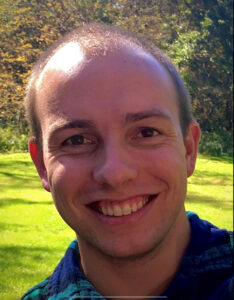By Patrick Schmadeke
Evangelization in the world today.

It wasn’t something I was consciously aware of, but I remember feeling the need to have one political party be the embodiment of Christian teaching. A growing awareness of American politics and political history in my early adult years put some stress on this belief. A growing understanding of Catholic teaching applied even greater stress. Eventually, these implicit beliefs about politics and Church could not withstand the explicit knowledge that had accrued.
Election seasons can feel like weighty times and the heavier the feelings, the cloudier judgment can become. We want to know the irrefutable facts, the indisputable data and the unequivocal evidence. In our search for what is objectively true we seek a firm foundation that directs right action. The intervening step between data and right action is practical wisdom, or prudence, and our difficulty is about where to find wisdom when sophistry abounds.
There are many ways to interpret our historical moment: accurate ways, inaccurate ways and more or less accurate ways. We can and should ask many questions. We can apply any number of legitimate lenses to understand our moment: political, economic, social, geographic, racial, artistic, technological, linguistic, sex- or gender-based, religious, generational or ethnic.
Whatever is meaningful in life is by default a lens and any given lens will cast a unique light on the data of experience available to us. Each lens will color our moment with a certain hue, bring into relief unnoticed dimensions and reveal facets previously unseen. Just as we can attend to a rose with each of our senses (though I wouldn’t recommend eating a rose), we can attend to the data of experience with the aforementioned lenses.
Still, understanding is not yet wisdom. For this we need the lens, the eyes of Christ. If we are to be wise in this moment, the wisdom of the world will not suffice. “The foolishness of God is wiser than human wisdom, and the weakness of God is stronger than human strength” (1 Cor 1:25). The distance between worldly wisdom, driven by sin, and the wisdom of God is not a difference in degrees; it is a difference in kind.
“God chose the foolish of the world to shame the wise, and God chose the weak of the world to shame the strong, and God chose the lowly and despised of the world, those who count for nothing, to reduce to nothing those who are something, so that no human being might boast before God” (1 Cor 1:27-29). God’s preferential option for the despised is incarnate in the one who became despised. From this we understand that, without exception, the wisdom of God takes the form of a cross. A life of self-emptying love is the infallible sign of the presence of wisdom.
Our turn to action can be guided by the Second Vatican Council’s Gaudium et Spes. Regarding individual civic duty it says, “all Christians must be aware of their own specific vocation within the political community. It is for them to give an example by their sense of responsibility and their service of the common good. In this way they are to demonstrate concretely how authority can be compatible with freedom, personal initiative with the solidarity of the whole social organism, and the advantages of unity with fruitful diversity. They must recognize the legitimacy of different opinions with regard to temporal solutions, and respect citizens, who, even as a group, defend their points of view by honest methods.”
Gaudium et Spes also addresses the role of political leaders: “those who are suited or can become suited should prepare themselves for the difficult, but at the same time, the very noble art of politics, and should seek to practice this art without regard for their own interests or for material advantages. With integrity and wisdom, they must take action against any form of injustice and tyranny, against arbitrary domination by an individual or a political party and any intolerance. They should dedicate themselves to the service of all with sincerity and fairness, indeed, with the charity and fortitude demanded by political life.”
I remember the feeling of relief when I saw on paper the words that met my experience: no political party can be an effective vehicle for the Gospel. The simplicity of the Gospel and its message of the cross is too out of step for such human institutions. That insight felt like the presence of wisdom and the beginning of a new chapter where the form of the cross is the criteria for political responsibility.
(Patrick Schmadeke is director of evangelization for the Diocese of Davenport.)








